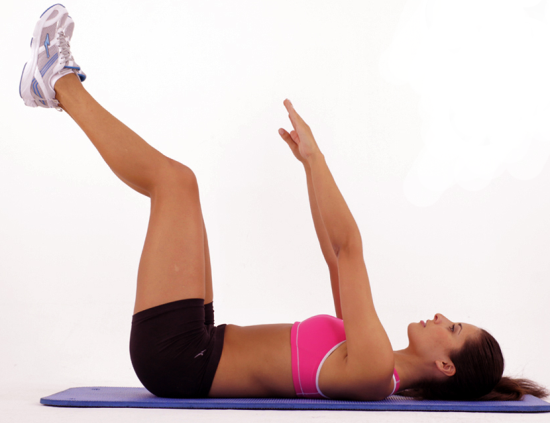Pilates is a low impact exercise system that improves endurance, flexibility, core strength and spinal strength and blood circulation and which helps lower stress. So it is easy to see that prenatal Pilates is great idea for pregnant women to keep fit and healthy and also improve mental wellbeing.
Why prenatal Pilates is a good idea
Pilates helps improve physical coordination and body balance, both of which can be very important during pregnancy. A growing belly can make a woman feel off-balance and increase her chances of falling which Pilates can help to counter and they can make a woman feel more graceful and less clumsy.
 Improving flexibility and core strength are also important and may help ease the process of labor and childbirth, another reason why prenatal Pilates is a good idea.
Improving flexibility and core strength are also important and may help ease the process of labor and childbirth, another reason why prenatal Pilates is a good idea.
Since the stomach and the pelvis come under increasing pressure, improving core strength can help to withstand that pressure better and can ease problems like back ache, abdominal pain and so on.
Pilates are low impact exercises, another reason why they are a good idea in pregnancy when ligaments are softened and joints are loosened. Since a lot of Pilates exercises are performed on the hands and knees, they are great for pregnancy and can also help get the baby into the correct position for the birthing process.
How to learn prenatal Pilates
Teach yourself – Various books, manuals, DVDs and so on will offer you instructions on how to do Pilates in pregnancy. Be sure that you pick instruction books or DVDs that are special for pregnant women and are made by qualified individuals.
You can even get a lot of great ideas from joining an online forum or visiting video share sites such as YouTube, where you can look at videos offering step by step instructions.
However be sure to clear any exercise you plan to do with your attending doctor so that you don’t end up doing anything that is not suitable for pregnancy.
Join a pregnancy Pilates class – Many women find it enjoyable to be part of a class, because it helps them stick to a program and having company when doing exercises makes the process more pleasant. Also, having a certified trainer in charge of the process specially trained for pregnancy Pilates can be reassuring for a woman.
Things to keep in mind about prenatal Pilates
If you’re doing to do pregnancy Pilates, concentrate on poses that require you to be on your hands and knees and avoid exercises that need you to lie on your back (especially after 20 weeks) or your tummy. Take care of your wrists if you’re doing a lot of the hands and knees type of exercises because carpal tunnel can be a problem at this time.
Concentrate on exercises that focus on the stomach, back and hips. Also try and concentrate your mind, doing the exercises mindfully and concentrating on breathing. Stretching is an important part of prenatal Pilates but don’t overstretch any joint because this can mean injury and pain.




